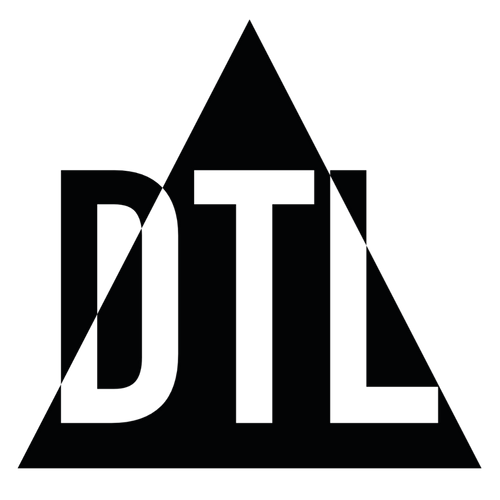
Are you someone who feels guilty for taking a rest day? You’re not alone! Many of us know that its essential to get in those resting days to optimize our performance and overall physique. But do you know exactly why we need the recovery time and what’s the process our body goes through to recover?
Rest days are crucial not just physiological recovery but psychological too. You may not know but your mental state comes into play grossly when it comes to your training; specifically, if you’re just mentally exhausted of training over and over, or if you’re just not motivated enough to get out of bed to train after you’re physically exhausted from the last training session. Rest is critical for your muscles to repair, rebuild and strengthen; your body goes through numerous chemical reactions to actually rebuild the muscles. One of the reactions you may know this as protein-synthesis.
What is the physiology of muscle growth during recovery?
During a weight resistance training, usually the goal is to put enough stress on the muscles to create enough damage (micro-tears) that they have to go through a recovery phase which would end with essentially the muscle being bigger or stronger, this all depends on the type of reps and sets and weight you’re doing. However, we are going to use the example that you have trained 3 sets of 10-12 reps and a decently heavy weight, where you struggled to push the last set. Okay so during your workout “your muscles go through micro-tears”. These micro-tears eventually heal and require more protein, resulting in a stronger muscle. Once you have finished your training the muscles which have these micro-tears then send signals that they are injured and in response, “messenger RNA (mRNA) molecules carrying the coding sequences” (contain amino acids) which start the process of regenerating muscle cells, called protein synthesis. Muscle growth occurs whenever the rate of muscle protein synthesis is greater than the rate of muscle protein breakdown. However, this only happens once you have finished your workout, being your rest and recovery time.
What Happens during recovery time?
Recovery is the process of your muscles going through protein synthesis amongst many other recovery mechanisms. Why does this happen? Think that your body wants to keep a homeostasis, and when you train to a point where you do have these tears and a build up of lactic acid, your body goes through recovery mechanisms to make the muscles stronger and go back to an equilibrium state. So that if and when you do train to that standard again, your body is able to recover quicker.
Short Term Recovery
Short term recovery is the immediate response to a workout, particularly an intense training session. This is commonly called active recovery, which occurs within the first hours post training and the following of 2-3 days as well. Major factors to consider once in that short recovery phase is the replenishment of energy and fluids. It is crucial to replenish your body post workout to optimize the protein synthesis phase. Commonly taking a protein shake instantly after the workout, to prevent muscle breakdown and increasing the muscle size. Not only taking a protein shake but eating the right foods such as simple carbs to start the recovery growth phase. Its crucial to be replenishing the body with protein and carbs otherwise the body will break down the muscle tissue you have built in the past and convert to glucose for your body to use now as energy, this is called gluconeogenesis. (Why is it important to consume BCAA’s during a workout? Click here) Something to definitely want to avoid if you are wanting to build muscle! (Click here to learn about what foods are best to consume post workout for muscle growth)
Long Term Recovery
Long term recovery is the techniques used in reference to seasonal training. Specifically, to those professional athletes and competitors. Those who which have off season and bulk seasons etc. Allowing the body to have a complete rest and bring down the state of adaptations, making it easier for the athlete once back in season to apply stress to the body again without doing ridiculous weights etc.
Summarize Points to optimize your Recovery
- Hydration, is the number one. You must get enough water in your diet to allow your body to recover and replenish the fluids lost during the workout. A hydration supplement can be used to help, but never to replace the consumption water.
- Sleep! 7.5-9 hours of sleep every night is crucial to recovery. The muscles do not grow during the workout but after, and sleep is the best way for your muscles to recover.
- Stretching, not something that will specifically help you become flexible but will help you stretch your muscles out after they have gone through so much eccentric and concentric contraction which inevitably makes the muscle fibers shorter, creating stiffness and soreness. Stretching out post workout will help release the lactic acid and start the recovery process.
- Protein! Get yourself a decent tasting protein powder that you can easily down within minutes mixing only wit water. I say water because you’re not always going to have milk on you, so best to find a protein that will still taste good with water. This is crucial to stop your muscles going through gluconeogenesis.
- Carbs, if you are wanting to build muscle then make sure you’re consuming simple carbs within the first two hours post workout. This will help grossly with building and recovering your muscles!
Nutritiontacticscom. 2016. Muscle Protein Synthesis. . Nutrition tactics. [Online]. [3 June 2019]. Available from: http://www.nutritiontactics.com/measure-muscle-protein-synthesis/
Bodybuildingcom. 2019. Muscle Protein Synthesis. . Bodybuildingcom. [Online]. [3 June 2019]. Available from: https://www.bodybuilding.com/content/post-workout-carbs.html
Homegymrcom. 2016. Muscle Protein Synthesis. . HomeGymr. [Online]. [3 June 2019]. Available from: https://homegymr.com/micro-tears-in-muscles/
Bodybuildingcom. 2019. Muscle Protein Synthesis. . Bodybuildingcom. [Online]. [3 June 2019]. Available from: https://www.bodybuilding.com/content/the-science-of-muscle-recovery-how-long-should-you-rest-between-workouts.html
Author
Rhiannon Duke

0 comments